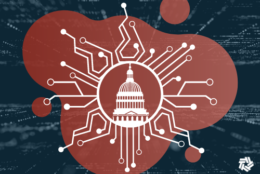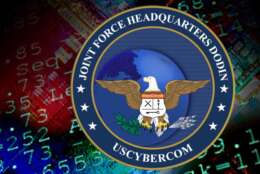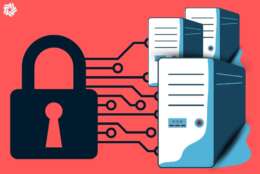Cybersecurity
-
The Technology Modernization Fund Board made three awards to USDA, DHS and FTC for a total of $94.8 million for network and cyber efforts.
June 22, 2022 -
The innovative world of Internet of Things (IoT) means industry and government can build things better, stronger faster. They can gather more information, and quickly integrate it. However, there is a price to moving that much data around at that speed. It also means keeping pace with the security concerns in a sophisticated, quickly-evolving environment.
June 21, 2022 -
Agencies have made a wholesale push to the cloud, and now they have corresponding security guidance under CISA's Trusted Internet Connections 3.0.
June 17, 2022 -
Trust underpins evidence-based innovation, but all parties still need to agree on their definition of trustworthiness.
June 16, 2022 -
In today's Federal Newscast, the Coast Guard's Cyber Red and Blue Team Branch chief says that a ransomware attack is probably coming to a federal agency soon.
June 16, 2022 -
The Hosting and Compute Center at the Defense Information Systems Agency is prioritizing the customers over the technology itself.
June 16, 2022 -
U.S. Cyber Command wants to expand the use of artificial intelligence and machine learning. To do that, it’s kicked off a broader survey of machine learning requirements across the Defense Department.
June 15, 2022 -
The Marines Corps awarded GDIT a task order under the Defense Enterprise Office Solutions (DEOS) contract to test out how they can receive Microsoft Office capabilities both on-premise and in the cloud in a classified environment.
June 14, 2022 -
The agency is sending teams of advisors to help agencies shore up their cybersecurity plans.
June 13, 2022 -
Dr. Matthew McFadden, vice president for cyber at GDIT, explains how artificial intelligence and machine learning can dynamically analyze behaviors across the network, identify unusual activity that poses a risk, and automatically take action to contain threats.
June 13, 2022 -
Raj Iyer, the Army’s chief information officer, said the Army’s IT and cybersecurity budget request is $16.6 billion in 2023, which is the largest of all DoD services.
June 13, 2022 -
With zero trust, the network itself can actually tell you, via IP addresses, how many users you have and what applications they’re using. That information can be collected passively, and it’s where agencies need to start to best secure their networks, because insider threat should be their primary concern.
June 13, 2022 -
In today's Federal Newscast, the Biden administration outlines its plan to maximize COVID-era IT modernization funds, and a study shows the brain injury CTE is rare in military personnel.
June 13, 2022 -
Because of the development of quantum computers, keeping our information, financial details and personal secrets protected is at risk today.
June 10, 2022 -
The Defense Department is still figuring out how to raise the cybersecurity waterline among its vendor community as part of its Cybersecurity Maturity Model Certification program. And some new research based on privately collected cyber risk intelligence shows the problem is as urgent as ever.
June 09, 2022











